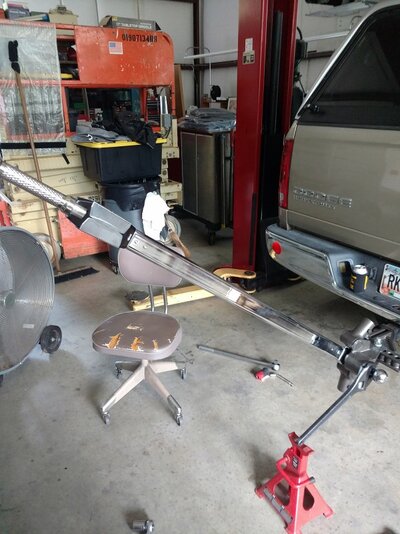Excalibur
Well-known member
I am installing a new WDH on my van. Instruction video from manufacturer says tighten bolts on shank for hitch assembly to 260 ft/lbs. My torque wrench goes to 250 ft/lbs. Opinions on whether that's enough or is the extra ten pounds critical? Really would hate to have to spend 250 bucks to get that extra ten pounds. Opinions? Thanks in advance.

